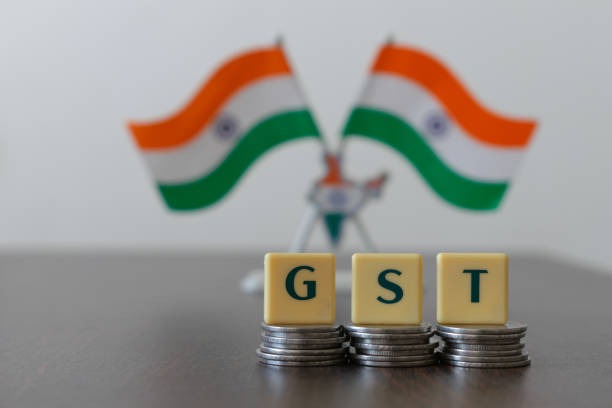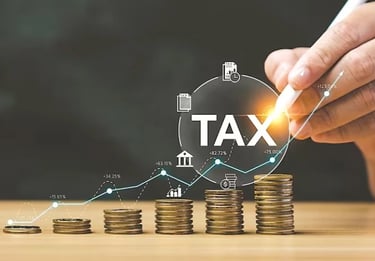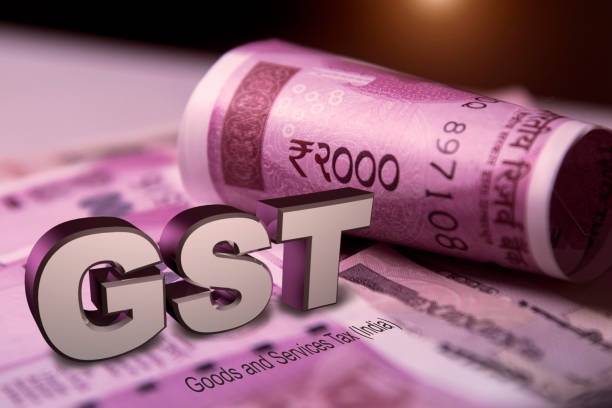GST Returns: Comprehensive Filing Services for Your Small Business
we offer expert assistance in filing all types of GSTR (Goods and Services Tax) returns. our services ensure your small business remains complete with GST regulations, allowing you to focus on growth and profitability. Here's an overview of the GSTR returns we can help you with: -






What is GST Return Filing?
GST return filing is the process of reporting business transactions, including sales, purchases, tax collected, and tax paid to the government under the Goods and Services Tax (GST) system. It ensures transparency and compliance with GST laws.
Who Should File GST Returns?
All registered businesses under GST must file returns, including:
Regular taxpayers
Composition scheme taxpayers
E-commerce operators
Input service distributors (ISD)
Non-resident taxable persons
Types of GST in India
Goods and Services Tax (GST) is classified into different types based on the nature of transactions and jurisdiction. The four main types of GST are CGST, SGST, IGST, and UTGST.


Central Goods and Services Tax (CGST)
Levied by: Central Government
Applicable on: Intra-state transactions (within the same state)
Collected by: Central Government
Rate: Usually equal to SGST (varies by product/service category)
State Goods and Services Tax (SGST)
Levied by: State Government
Applicable on: Intra-state transactions (within the same state)
Collected by: Respective State Government
Rate: Usually equal to CGST
Integrated Goods and Services Tax (IGST)
Levied by: Central Government
Applicable on: Inter-state transactions (between two states or union territories) & Imports
Collected by: Central Government, later shared with the destination state
Rate: Equal to CGST + SGST combined
How GST is Applied in Different Transactions













Transaction Type
Applicable GST
Sale within the same state
Sale between two different states
Import of goods/services
Export of goods/services
CGST + SGST
IGST
IGST
Zero-rated (No GST)
GST Return Types:
1. GSTR-1: Details of Outward Supplies (Sales)
Filed by regular taxpayers to report sales transactions.
Can be filed monthly (if turnover > ₹5 crore) or quarterly under the QRMP scheme.
Due Date: 11th of next month (Monthly) / 13th of next quarter (Quarterly)
2. GSTR-2A & GSTR-2B: Auto-Generated Purchase Statements
GSTR-2A: Shows purchases made (auto-filled based on GSTR-1 of suppliers).
GSTR-2B: Provides ITC details available for a given period
Helps businesses claim ITC correctly.
3. GSTR-3B: Summary Return
Includes total sales, tax paid, ITC claimed, and final GST liability.
Filed monthly by regular taxpayers.
Due Date: 20th of next month
4. GSTR-4: Quarterly Return for Composition Scheme
For businesses under the Composition Scheme (turnover up to ₹1.5 crore).
Contains details of supplies, tax liability, and payments made.
Due Date: 18th of the month after the quarter


5. GSTR-5: Return for Non-Resident Taxpayers
Filed by non-resident taxable persons doing business in India.
Reports sales, purchases, and tax paid.
Due Date: 20th of next month
6. GSTR-6: Return for Input Service Distributors (ISD)
Filed by businesses distributing ITC among branches.
Provides details of ITC received and distributed.
Due Date: 13th of next month
7. GSTR-7: Return for TDS under GST
Filed by entities deducting Tax Deducted at Source (TDS) under GST.
Reports TDS details and payments.
Due Date: 10th of next month
8. GSTR-8: Return for E-commerce Operators
Filed by e-commerce platforms deducting Tax Collected at Source (TCS).
Reports supplies made through the platform and tax collected.
Due Date: 10th of next month
9. GSTR-9: Annual GST Return
A consolidated summary of all monthly/quarterly returns filed during the year.
Required for taxpayers with turnover > ₹2 crore.
Due Date: 31st December of the next financial year
10. GSTR-9C: Reconciliation Statement & Audit Report
Filed by businesses with turnover > ₹5 crore.
Requires a CA/CMA audit to reconcile tax details.
Due Date: 31st December of the next financial year
11. GSTR-10: Final Return after GST Cancellation
Filed when GST registration is canceled or surrendered.
Due Date: Within 3 months of cancellation
12. GSTR-11: Return for UIN Holders
Filed by foreign embassies, consulates, and other UIN holders.
Due Date: 28th of the next month
Regular Taxpayer under GST
A Regular Taxpayer under the Goods and Services Tax (GST) system in India is any business or individual registered under GST who files returns regularly and complies with tax regulations. This category allows businesses to collect GST, claim Input Tax Credit (ITC), and meet tax obligations as per government rules.
What Is Regular TaxPayer Meaning & Benefits
Who is a Regular Taxpayer?
A Regular Taxpayer is:
A business with an annual turnover above ₹40 lakh (for goods), ₹20 lakh (for services), or ₹10 lakh (for special category states).
Any business making inter-state sales or supplying through e-commerce platforms.
A taxpayer who collects GST from customers and pays it to the government
Eligible to claim ITC on GST paid for purchases.
GST Compliance for Regular Taxpayers
GST Returns to be Filed:
GSTR-1 – Monthly/quarterly details of sales (outward supplies).
GSTR-3B – Monthly summary of sales, ITC claims, and tax payments
GSTR-9 – Annual GST return for businesses.
GST Payment & Invoicing:
Businesses must charge GST on sales and file returns regularly.
GST payments can be adjusted against available Input Tax Credit (ITC).
E-Invoicing mandatory for businesses with turnover above ₹5 crore.
GST Registration & Cancellation:
Businesses can convert from the Composition Scheme to Regular GST if turnover exceeds limits.
GST registration can be cancelled if the business discontinues or falls below the threshold.
A Composition Taxpayer under GST is a small business that chooses a simple and easy tax system called the Composition Scheme. Instead of paying GST on every sale and keeping detailed records, they pay a small fixed percentage of their total sales as GST.
Composition Taxpayer under GST
Less paperwork and fewer GST returns
Lower tax rates compared to regular GST
No need to collect GST from customers
Cannot claim tax credit on purchases
Cannot sell outside their state
Cannot sell through e-commerce platforms
This scheme is ideal for small traders, shopkeepers, and restaurants who want to reduce GST compliance and focus on their business.
Benefits of the Composition Scheme ( Small Taxapayer)
Lower Tax Rate: Businesses pay GST at a fixed percentage of turnover:
Manufacturers & Traders:
1% of turnover (0.5% CGST + 0.5% SGST)
Restaurants (Serving Non-Alcoholic Beverages):
5% (2.5% CGST + 2.5% SGST)
Service Providers (Under ₹50 Lakh Turnover):
6% (3% CGST + 3% SGST)
Simple GST Returns: Only one quarterly return (GSTR-4) and annual return (GSTR-9A) need to be filed.
No Monthly GST Payments: Taxes are paid quarterly, reducing compliance burden.
Less Compliance & Paperwork: No need for detailed invoicing or input tax credit calculations.
GST Compliance for Composition Taxpayers
GST Returns to be Filed:
GSTR-4 – Quarterly return for tax payment and summary of turnover.
CMP-08 – Quarterly tax payment form.
GSTR-9A – Annual GST return (optional).
Restrictions on Composition Taxpayers:
Cannot claim Input Tax Credit (ITC).
Cannot charge GST separately on invoices.
Cannot make inter-state sales or supply goods through e-commerce platforms.
Must mention “Composition Taxpayer – Not Eligible to Collect GST” on invoices.



Who Should Choose the Composition Scheme?
Small traders, manufacturers, and restaurant owners who sell within the same state.
Businesses with low expenses on GST inputs (as they cannot claim ITC).
Those looking for simple compliance and lower tax rates.
Why Choose Us for GST Services?
At Clearline Professional Chartered Accountant, we offer expert GST services, including:


GST Registration & Compliance Assistance
Monthly & Annual GST Return Filing
Input Tax Credit Optimization
GST Audit & Consultation
Need GST Assistance? Contact us today!
Services
Your trusted partner for financial success.
Support
Contact Us
+91-9975791135
© 2025. All rights reserved.
